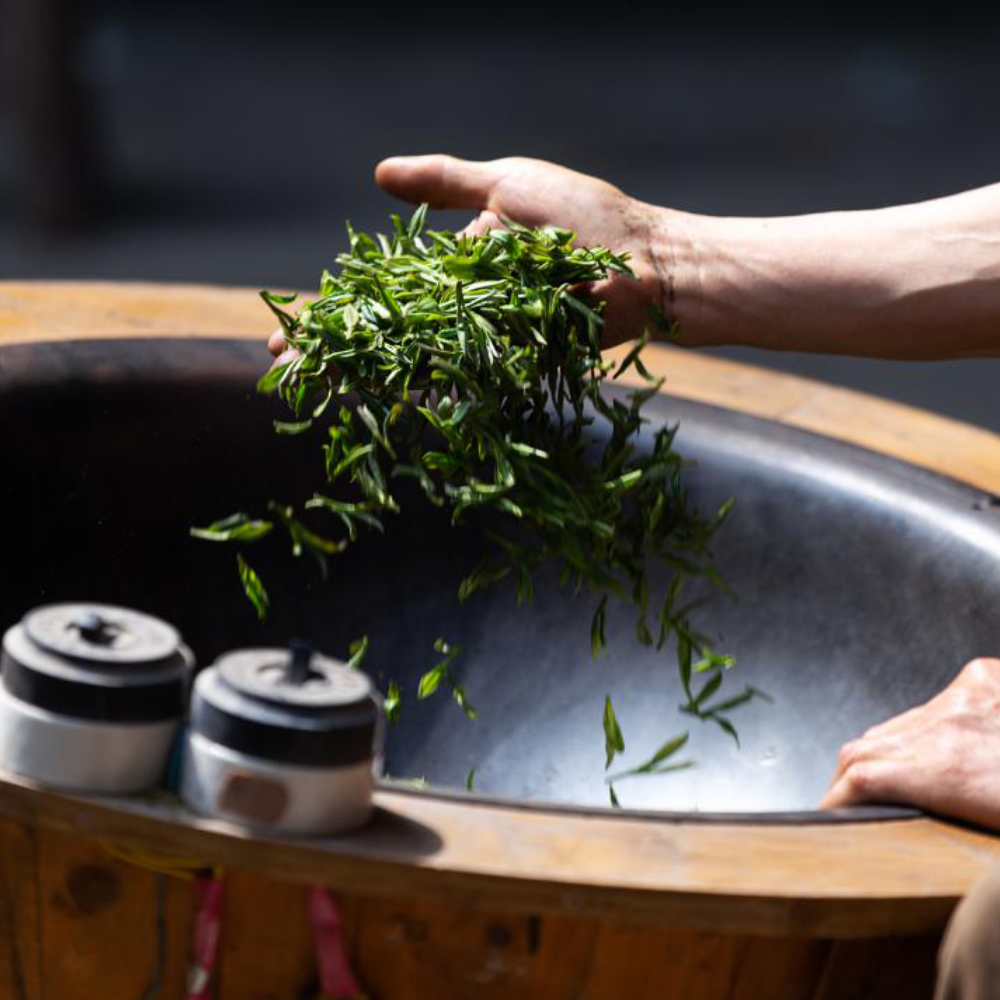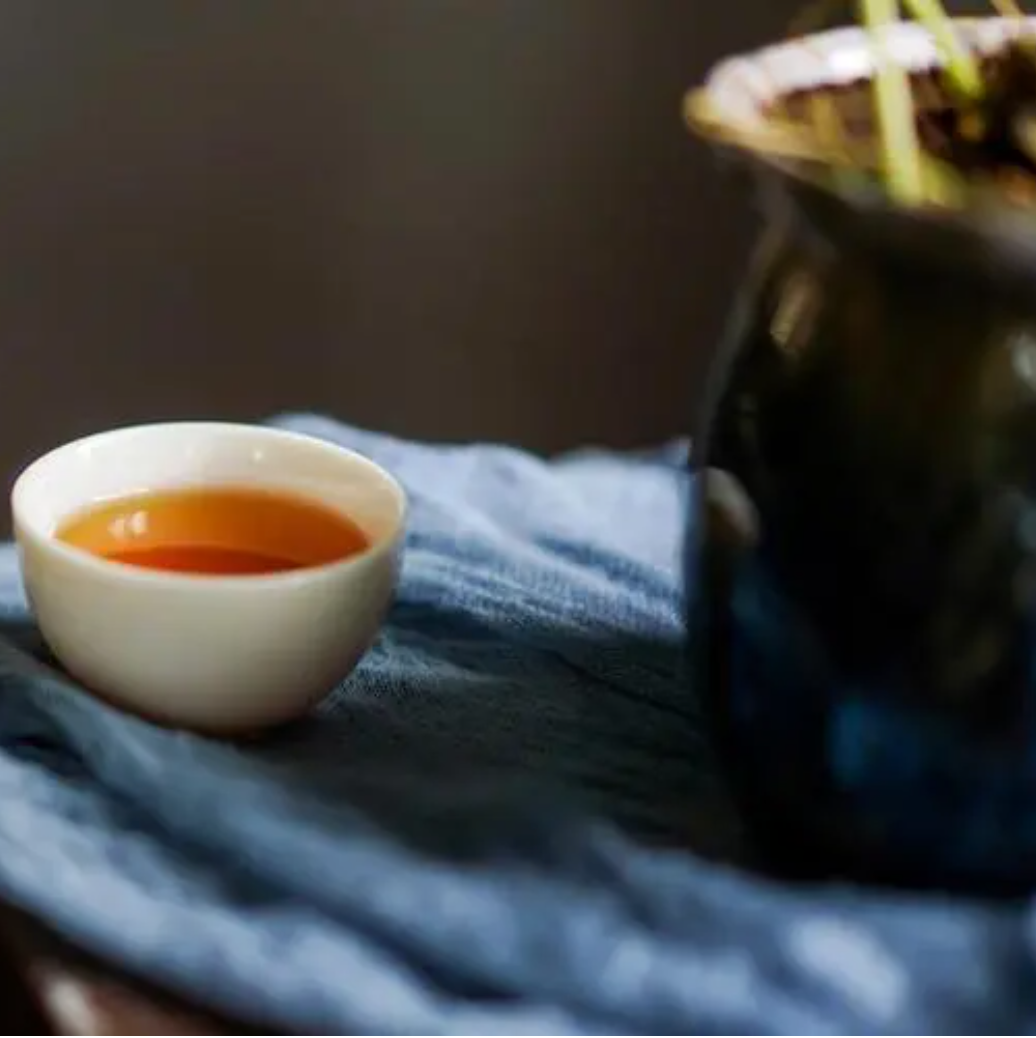Article: How to make teapot tea

How to make teapot tea
In tea shops or among tea enthusiasts, one can taste exceptionally delightful teas. However, when one eagerly attempts to brew it themselves, the flavor seems entirely off, no matter how they try. Could it be that the merchants switched the tea leaves, or is there some secret tea-brewing technique not shared publicly?

Many tea enthusiasts find this perplexing and disappointingly conclude, "I just can't brew it the way it was." However, there are a few key factors that influence the taste of brewed tea.
1. **Amount of Tea**: In brewing the same tea, the amount of tea used is a crucial factor determining the quality of the tea soup. Too much tea results in an overly strong brew, while too little makes it weak.
Typically, for a 100ml Gaiwan, using 5-7g of dry tea can fully showcase the characteristics of a tea. Initially, it's best to use a digital scale for accurate measurement.
2. **Brewing Utensils**: A tea enthusiast once asked, "Why does the tea I brew at home taste different from what I drink in the shop, even though I strictly follow a 1:15 tea-to-water ratio?" The revelation came when the enthusiast showed their brewing utensils, which included a Yixing clay pot.
Compared to a Gaiwan, a Yixing pot has a slower pour, requiring a reduction in the amount of tea and a shorter brewing time. The shape of the pot and the spout also affect the amount of tea used. Each pot has its optimal tea amount, and it's recommended to experiment and adjust according to the actual situation.
3. **Pouring Technique**: Does the pouring technique affect the taste of the tea soup? Indeed, it does!
For some teas that emphasize soup texture, which contain rich substances and high caffeine content, the brewing technique is quite unique. Pouring water along the cup's wall to avoid hitting the tea leaves directly and ensuring a slow pour can help achieve a thick texture while preventing excessive bitterness from the caffeine. Different pouring techniques also mean different brewing times, further affecting the overall brewing duration.
4. **Brewing Time**: The impact of brewing time on the tea soup is undeniable, but many often overlook the details. The time for pouring in and pouring out the water is also included in the brewing time, and maintaining a consistent pour in and out time is essential.
Although the brewing time increases with each subsequent brew, the second infusion should be shorter than the first. After the initial steep, the tea leaves release their contents more quickly, so the time needs to be shortened. The tea leaf's condition, whether whole or broken, tightly pressed, and whether a pot or Gaiwan is used, all require adjustments to the brewing time. It's advised to experiment and share experiences.

5. **Water Temperature and Quality**: Different teas require different water temperatures. Large companies have conducted specific research and experiments on brewing methods and techniques, recommending that instructions be followed strictly for the best taste.
For water, bottled mineral water generally meets the requirements for brewing tea. Tap water is not recommended due to its high hardness and impurity content. Those who can afford it might try boiling water in iron or silver pots to improve water temperature and quality.
6. **Storage**: A tea enthusiast once shared their tea for tasting, only for others to detect a "strange fragrance," reminiscent of soap. It was discovered that the tea's packaging was damaged, and the tea had indeed been stored with soap.
Tea easily absorbs odors. It's crucial to store tea in a sealed single-cake bag to prevent such tragedies. As the saying goes, "Three parts tea, seven parts storage," proper storage is vital for preserving tea's flavor. Without adequate storage, not only will the tea's taste deteriorate, but it will also become unusable.
Tea is simple, and simplicity is key. However, paying attention to the details of tea brewing can enhance the essence of the tea. Drink tea with a pure heart of love. This tea brewing notebook hopes to help you.

**Black Tea**: Pay attention to duration and water temperature.
For black tea, control the tea amount between 3-5 grams. The first infusion should last about 3-5 seconds, quickly pouring out the tea and draining the remaining water in the Gaiwan to avoid affecting the next infusion's taste.
The duration for each subsequent infusion can be adjusted based on the previous one, extending by 3-5 seconds.
Quality black tea should be brewed with boiling water at 100 degrees Celsius to extract its rich substances.
When the weather is cold, the tea soup cools quickly, so when brewing black tea in a Gaiwan, it's advisable to pour the tea soup for two infusions into a fairness cup before serving to guests. This avoids excess tea soup turning cold and prevents waste.
**Dark Tea**: Focus on rinsing the tea.
Dark tea typically releases its aroma after 5 minutes of brewing. Compared to tea cakes, loose tea releases flavor more easily. "The older, the more fragrant" is a distinguishing characteristic of dark tea.
Therefore, the most crucial step in brewing dark tea is rinsing it - first placing the tea leaves in a cup, pouring in boiling water, waiting a moment, then pouring out the water before adding boiling water again and covering with a lid. This not only removes impurities from the tea leaves but also enhances the aroma.
**Aged Tea**: Dryness and health come first.
First, check for any damp smell. If present, spread the tea on odorless paper in a well-ventilated, dry area for a day. If the tea is too dry, place it in a more humid area. This pre-brewing refinement is essential.
Aged tea generally requires high temperatures, boiling the water longer or using a pot with a tight or heavy lid. If the tea tastes too bitter, lower the water temperature.
Aged white tea can be boiled in a teapot. Initially, fill only 2/3 with water, and when it boils, add 1/3 more water to boil again. This ensures a pure and fresh flavor.
**Tieguanyin**: Aroma elevation signifies quality.
A Zhu Ni clay pot is preferred for brewing Tieguanyin due to its high shrinkage property, which enhances the fragrance and produces a tighter, smoother tea soup with a strong sweet aftertaste and lingering charm. Zhu Ni pots are especially suited for lightly fermented, highly aromatic Oolong teas.
**Green Tea**: Maintaining freshness is fundamental.
Studies have shown that amino acids and vitamin C are the most easily extracted substances during brewing, followed by caffeine, tea polyphenols, and soluble sugars.
Typically, the first infusion of green tea can extract about 50% of the soluble substances; the second infusion about 30%; and the third about 10%, decreasing with each subsequent brew. Therefore, brewing three times is optimal, with water just beginning to boil, ensuring a fresh and refreshing tea.

The ratio of tea to water should be appropriate, usually between 1:50 to 1:60 (1 gram of tea to 50-60ml of water), resulting in a tea soup with a moderate concentration and a fresh, rich taste.
**Tea Brewing Water Quality Details**
Hard water is not suitable for brewing tea. Water hardness affects the solubility of tea's active components. Soft water, with fewer dissolved substances, allows for a higher solubility of tea's active ingredients, resulting in a stronger tea flavor. In contrast, hard water contains more calcium, magnesium ions, and minerals, lowering the solubility of tea's active components and leading to a weaker tea flavor.
Other metal ions in water also affect the tea's taste. For example, high iron content turns the tea soup dark brown; lead content above 2ppm makes the tea taste bitter; magnesium content above 2ppm makes the tea taste weak; calcium content above 2ppm makes the tea taste astringent.
In natural waters, rainwater and snowwater are soft waters, while spring water, stream water, and river water are generally temporary hard waters, and some groundwater is hard water.
Brewing tea is an act of kindness to oneself. If you don't treat tea well, how can it offer you a delightful taste?





